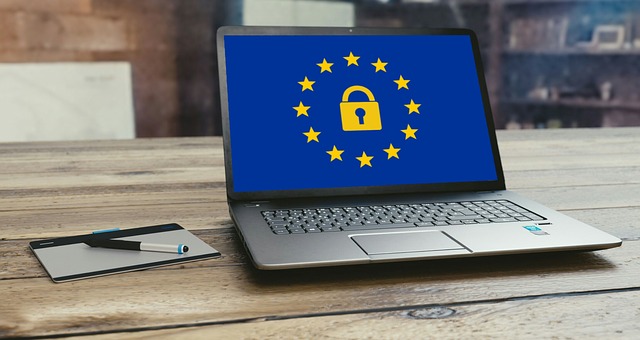General Data Protection Regulation (or GDPR as it is more commonly known), is being introduced to overhaul how businesses process and handle data.
Key Questions
- When Do The New Regulations Begin? 25th May 2018
- Who Will Be Enforcing It In The UK? The Information Commissioner’s Office
- What Is Different? There are new rights for people to access the information companies hold about them, obligations for better data management for businesses, and a new regime of fines
- Will GDPR Be Impacted By Brexit? The UK is implementing a new Data Protection Bill which includes all the provisions of the GDPR. There are some small changes but our own law will be largely the same.
GDPR and other data protection laws rely on the term ‘personal data’ to discuss information about individuals. There are two key types of personal data in the UK and they cover different categories of information.

What Is Personal Data?
Personal data can be anything that allows a living person to be directly or indirectly identified. This may be a name, an address, or even an IP address. It includes automated personal data and can also encompass pseudonymised data if a person can be identified from it.
What Is Sensitive Personal Data?
GDPR calls sensitive personal data as being in ‘special categories’ of information. These include trade union membership, religious beliefs, political opinions, racial information, and sexual orientation.
Taking A Closer Look
We understand that this new regulation looks particularly complex and have written this article to help provide answers to some of the more commonly asked questions, starting with what is GDPR exactly?
Please Note – You can find all of the important information on the official website by clicking here.
What Actually Is GDPR?
After four years of preparation and debate the GDPR was finally approved by the EU Parliament on 14 April 2016. Enforcement date: 25 May 2018 – at which time those organizations in non-compliance may face heavy fines.
The EU General Data Protection Regulation (GDPR) replaces the Data Protection Directive 95/46/EC and was designed to harmonise data privacy laws across Europe, to protect and empower all EU citizens data privacy and to reshape the way organisations across the region approach data privacy.

Who Does the GDPR Impact?
The GDPR not only applies to organisations located within the EU but it will also apply to organisations located outside of the EU if they offer goods or services to, or monitor the behaviour of, EU data subjects. It applies to all companies processing and holding the personal data of data subjects residing in the European Union, regardless of the company’s location.
What Are The Penalties For Non-Compliance?
Organisations can be fined up to 4% of annual global turnover for breaching GDPR or €20 Million. This is the maximum fine that can be imposed for the most serious infringements e.g. not having sufficient customer consent to process data or violating the core of Privacy by Design concepts.
There is a tiered approach to fines e.g. a company can be fined 2% for not having their records in order (article 28), not notifying the supervising authority and data subject about a breach or not conducting impact assessment. It is important to note that these rules apply to both controllers and processors — meaning ‘clouds’ will not be exempt from GDPR enforcement.
What Is The Difference Between a Data Processor And a Data Controller?
A controller is the entity that determines the purposes, conditions and means of the processing of personal data, while the processor is an entity which processes personal data on behalf of the controller.
The conditions for consent have been strengthened, as companies will no longer be able to utilise long illegible terms and conditions full of legalese, as the request for consent must be given in an intelligible and easily accessible form, with the purpose for data processing attached to that consent – meaning it must be unambiguous. Consent must be clear and distinguishable from other matters and provided in an intelligible and easily accessible form, using clear and plain language. It must be as easy to withdraw consent as it is to give it.
Explicit consent is required only for processing sensitive personal data – in this context, nothing short of “opt in” will suffice. However, for non-sensitive data, “unambiguous” consent will suffice.
What is the Difference Between a Regulation and a Directive?
A regulation is a binding legislative act. It must be applied in its entirety across the EU, while a directive is a legislative act that sets out a goal that all EU countries must achieve. However, it is up to the individual countries to decide how. It is important to note that the GDPR is a regulation, in contrast the previous legislation, which is a directive.
Does My Business Need to appoint a Data Protection Officer (DPO)?
DPOs must be appointed in the case of: (a) public authorities, (b) organisations that engage in large scale systematic monitoring, or (c) organisations that engage in large scale processing of sensitive personal data (Art. 37). If your organisation doesn’t fall into one of these categories, then you do not need to appoint a DPO.
A more in depth analysis of the one-stop-shop policy debate can be found here.

